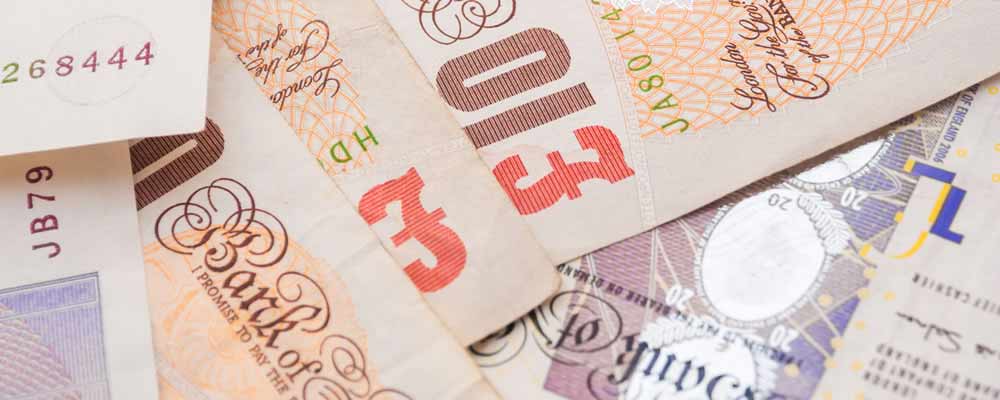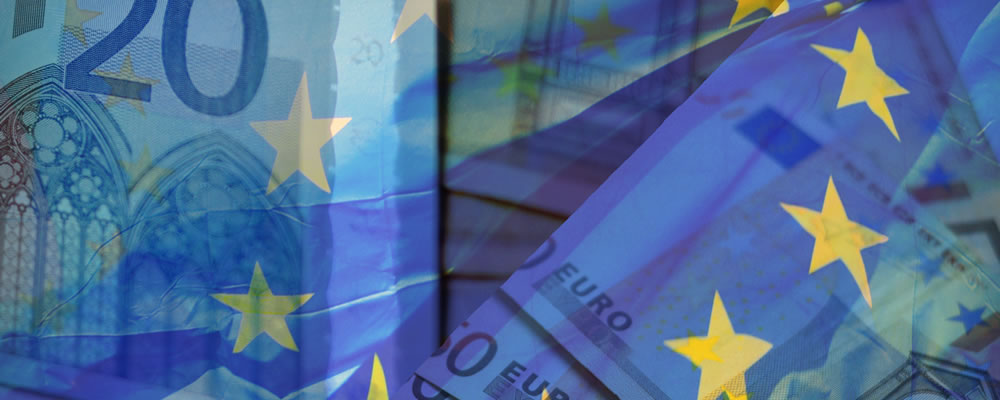The Greek debt crisis is in focus today, weakening EUR exchange rates (EUR USD and EUR GBP) after the IMF claimed it was being misrepresented.
- IMF blog post weakens EUR exchange rates – Fund denies pressing for more Greek austerity
- EUR USD slides ahead of Fed meeting – US Dollar recovers, though upside potential limited
- EUR GBP falls despite above-forecast inflation – Investors wonder if BoE may be forced to hike interest rates
- EUR exchange rates forecast – Fed rate hike to steal focus tomorrow
The US Dollar has edged higher after yesterday’s sell-off, while the Pound is advancing despite a faster pace of price growth than had been expected.
EUR Continues to Decline as Fed Announces Monetary Tightening
Update, 14.45, 15/12/2016; The Euro has continued to weaken today after yesterday evening’s Federal Reserve policy announcement. Not only did the Federal Open Market Committee (FOMC) vote to raise interest rates by 0.25%, they also indicated that it was likely borrowing costs would be increased three times in 2017 against earlier predictions of twice.
Eurogroup Creditors Suspend Greek Debt Relief
Update, 14/12/2016; Greece’s creditors have today temporarily suspended measures that would have cut Greece’s debt burden by 20% by 2060. The move comes after Greek Prime Minister Alexis Tsipras provoked their ire by announcing a Christmas bonus for struggling Greek pensioners. This spending had not been discussed with creditors, but Tsipras claimed the move was acceptable as Greece has exceeded Eurogroup’s budget surplus targets this year.
EUR Exchange Rates Edge Higher; GBP Weakens as UK Employment Falls
Update, 14/12/2016; UK employment may have only edged lower in the three months to October, but analysts are already warning that the -6,000 drop shows that labour market conditions are weakening. The workforce had been expected to grow by 50,000.
EUR USD, GBP Lacklustre as Markets Await US Monetary Policy News
Update, 14/12/2016; Are the markets about to get an early Christmas present? The Federal Reserve is widely expected to hike interest rates today. The decision won’t be announced until after the European session closes, making trading today something of a write-off. Few investors want to take up positions now with a potential market-shifting event just a few hours away.
Euro Weakens Further; Greek Finance Minister Hits Back at IMF
Update, 13/12/2016; First Greek and now EU officials have waded into the debate to criticise the IMF. European Stability Mechanism (ESM) officials have commented that they are ‘surprised’ the IMF chose to comment on talks over the Greek bailout, which they described as still ‘ongoing’.
Update, 13/12/2016; In the latest twist to today’s unfolding saga surrounding the Greek debt crisis, the nation’s Finance Minister Euclid Tsakalotos has accused the IMF of ‘economising on the truth’. Tsakalotos has apparently taken issue with the Fund’s assertion it isn’t pushing for more austerity in the Hellenic nation, further pressuring the already strained relationship between all parties involved in, or on the side-lines of, the bailout. He has accused the IMF of ignoring the fact Greece has put forward a compromise suggestion for the key sticking point; that Eurogroup’s demand the country run a 3.5% budget surplus during the bailout is unachievable.
Fresh Row between Greek Creditors Unsettles EUR Exchange Rates
Perhaps feeling left out now that the epicentre of Eurozone instability appears to have shifted to Italy, the Greek debt crisis has once again reared its head. International Monetary Fund (IMF) officials have taken to their blog to deny claims that it was pressing for more austerity measures from the Greek government.
The IMF has not been involved in the latest €86 billion bailout of Greece due to major disagreements between the Fund and Eurogroup regarding the sustainability of the Hellenic nation’s debt burden. The IMF has long pressed for debt relief, while Eurogroup ministers, in particular those from Germany, have been firmly against the notion.
In a sign that those tensions continue, IMF European department director Poul Thomsen and Chief Economist Maurice Obstfeld have vented in a joint blog post that the Fund’s stance is being misrepresented by policymakers. The post, titled simply ‘The IMF is Not Asking Greece for More Austerity’, begins;
‘Greece is once again in the headlines as discussions for the second review of its European Stability Mechanism (ESM) program are gaining pace. Unfortunately, the discussions have also spurred some misinformation about the role and the views of the IMF. Above all, the IMF is being criticized for demanding more fiscal austerity, in particular for making this a condition for urgently needed debt relief. This is not true, and clarifications are in order.’
Support for the Greek bailout in Eurogroup members such as Germany and Finland is waning, so officials are desperate to get the Fund on board in order to lend credibility to the rescue deal. However, with the IMF and Eurogroup still clearly divided, this seems unlikely. This is weighing on EUR exchange rates today.
US Dollar Euro Exchange Rate Edges Higher, Fed Hike Bets Remain Strong
Barclays, along with many other forecasters, are expecting a rather muted response to the much-awaited hike;
‘This decision has been very well telegraphed, and therefore, we do not expect any material effect unless the committee decides to send a strong message regarding the likely path of monetary policy, something that we see unlikely at this stage.’
It seems likely there will be a rerun of the events of last December, when the Federal Reserve returned to its monetary tightening cycle after nearly a decade without a rate hike. That decision had also been widely signalled, although Fed funds futures never reached anywhere near the 100% mark, as happened this November.
When the anticipated tightening was announced in 2015, the US Dollar actually did very little – the ‘Greenback’ had already peaked, with investors having spent several weeks before the meeting trading USD on the assumption of higher interest rates. Considering the market is even more certain this time around of a hike, it is not surprising analysts are predicting a damp response.
Pound Euro Fluctuates around Earlier Gains as Inflation Hits 25-Month High

The latest UK inflation data has surprised to the upside, showing above-forecast core growth of 1.4% instead of 1.3% and non-core growth of 1.2% instead of 1.1%. The rate of growth is the highest since October 2014. According to the Office for National Statistics (ONS);
‘Rises in the prices of clothing, motor fuels and a variety of recreational and cultural goods and services, most notably data processing equipment, were the main contributors to the increase in the rate.
These upward pressures were partially offset by falls in air and sea fares.’
The Bank of England (BoE) had previously warned it would not use higher inflation to justify hiking interest rates, instead basing their policy decisions on underlying economic fundamentals. However, the fact that the rate of price growth is above-forecast, coupled with the fact Pound Sterling is performing much better than its post-referendum lows, is keeping hopes burning that the Monetary Policy Committee (MPC) may judge monetary policy tightening is, in fact, necessary.
GBP EUR exchange rates therefore remain firmly in positive territory, although the extent of gains is fluctuating.
EUR USD, EUR GBP Exchange Rate Forecast; Washout from Federal Reserve Policy Decision?
Eurozone industrial production data is set for release tomorrow morning, but with the looming economic juggernaut that is the US Federal Reserve’s final policy decision of the year approaching, the figures are unlikely to alter the day’s trajectory of EUR exchange rates.
With the Fed’s decision seemingly a foregone conclusion, there could be little movement from the US Dollar even if the telegraphed hike is delivered. Markets are more likely to focus on the long term – how hawkish does the Federal Open Market Committee (FOMC) sound regarding policy adjustments in 2017?
Of course, were the FOMC to rule that the economic fundamentals were unstable and that political uncertainty could weigh on the economy and therefore leave interest rates on hold, the US Dollar could tank.
UK unemployment and average earnings data tomorrow will be of interest. Investors will not react well if wage growth remains sluggish; rising consumer prices will squeeze household incomes, cutting consumer demand. Considering strong consumer spending is supporting the entire of the UK’s economic growth (services is the only sector of the economy not in contraction or stagnation), the prospect of dwindling demand is particularly worrying.
Interbank Euro Exchange Rates
At the time of writing, the Euro US Dollar (EUR USD) exchange rate was trending around 1.06, while the US Dollar Euro (USD EUR) exchange rate traded around 0.94.
The Euro Pound (EUR GBP) exchange rate traded around 0.83, while the Pound Euro (GBP EUR) exchange rate trending in the region of 1.19.



